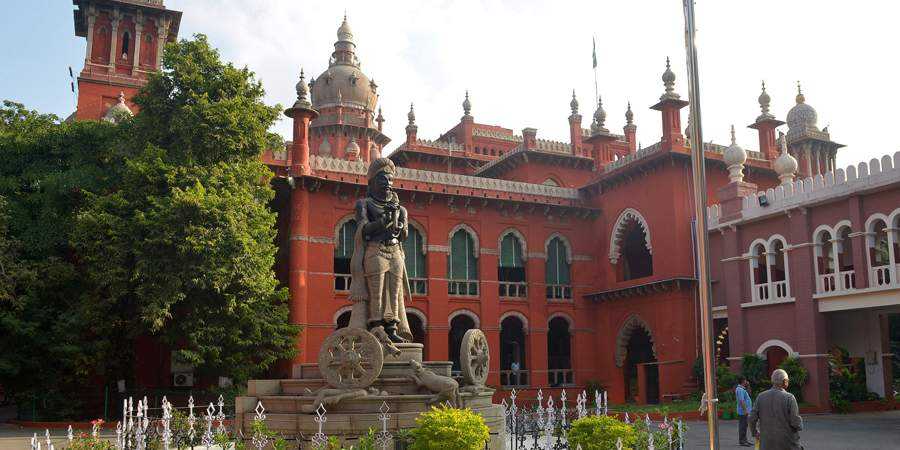
The Madurai Bench of the Madras High Court has expressed displeasure over the release of 13 convicts in connection with the Melavalavu massacre case, and has directed the Tamil Nadu government to produce before it copies of the government orders pertaining to their release, ANI reported.
A division bench of Justice S Vaidyanathan and Justice N Anand Venkatesh has asked the government to submit the order copies on November 19.
The Melavalavu Massacre
In the village of Melavalavu, Madurai, following the election of a Dalit to the village council presidency, members of an upper caste Hindu (Kallars) group murdered six Dalits in June 1996.
Melur panchayat, which was a general constituency i.e open to people of all castes and tribes for contesting, was declared a reserved constituency in 1996. This had caused resentment between Scheduled Caste people and Kallar (Ambalakarar) community. In the 1996 panchayat elections, Murugesan, a member of a Scheduled Caste, was elected president.
In June 1996, a group of persons attacked Murugesan, vice-president Mookan and others with deadly weapons, resulting in the death of six persons and injuries to many others. A total of 40 persons were cited as accused in the case. The trial court convicted Alagarsamy and 16 others and sentenced them to life imprisonment. On appeal, the High Court by its judgment dated April 19, 2006, confirmed the trial court’s order. (Source – Wikipedia)
Getting away with murder!
In 2008, three of the convicts were freed. This was when the Dravida Munnetra Kazhagam (DMK) was in power. On November 9 this year, the All India Anna Dravida Munnetra Kazhagam (AIADMK) released the 13 others who were granted life imprisonment by the Supreme Court on December 10, 2009. One convict, Jothi, died in prison.
The 13 convicts – U. Ponnaiah, K. Manikandan, A. Andichamy, V. Manoharan, N. Renganathan, N. Sakkaramoorthy, M. Alagu, K. Rajendran, P. Sekar, A. Chokkanathan, P. Selvam, P. Chinnaodungan and S. Ramar were released citing good conduct – as part of the MGR centenary celebrations.
Advocate P. Rathinam filed a petition in the case, seeking that the state furnish government orders pertaining to the release of the convicts.
The court questioned the State as to how the 13 convicted for such a heinous crime were released. “Six people were butchered; two courts, including the Supreme Court had confirmed the conviction. What was the hurry in releasing the convicts? What about the safety of the people in the village? Are they (the convicts) so important to the society that they need to be released?” the Court asked.
“There is a limit to which you can pass a government order. Even in the Dharmapuri bus burning case, the convicts were released. Lives of human beings were more important than any affiliation”, the Court said.
Anti-Dalit move
Condemning the move to release the convicts on account of ‘good conduct’, VCK leader Thol Thirumavalavan described the move as ‘anti-Dalit’.
Vanni Arasu, spokesperson VCK, said that the government order shows that anyone can get away after being involved in a caste massacre, provided they belong to a dominant caste.
She added that the government order 687 allows the release of prisoners who have served more than 10 years, and with a record of good conduct. “This GO clearly states that a person cannot be released if he is considered to be a threat to the society or locality,” points out Vanni Arasu. As a result, since 2008, no such persons were released on good conduct.
Speaking to The Indian Express, she asked, “Till date there is caste tension in the area over the murders. The release of these convicts will only worsen the situation. The release is a challenge to the Constitution. How can the State release such persons, who have challenged the State itself?”
“Now, however, the government has amended the GO to remove societal threat clause, which is condemnable,” alleges Arasu.
“This release renders the long legal battles fought by affected families meaningless.” Speaking to Express, a relative of the slain panchayat leader claimed the family was still receiving threats.
Another family member of the deceased said they found out about the release from news reports. “We are very upset with the State’s decision. It shows all governments will only favour dominant castes. We are left behind, even for survival.” Melur MLA Periyapullan (a) Selvam, who spoke in the Assembly for the release of the convicts, refused to comment on the issue.
The villagers of Melavalavu, along with the widows of the victims, activists, advocates and writers organized a day-long meeting organized by the Ambedkar Legal Services Union at the SOCO trust to discuss future action, The Hindu reported.
Members of the community demanded that the State government furnish orders that convicts jailed for caste- or community-related crimes will not be released under the guise of good conduct. Alleging that both the AIADMK and DMK had taken the decision for their political interests, they said the move raised doubts about the government’s intention to protect minorities and law-abiding citizens.
The members of the Dalit community resolved to boycott both DMK and AIADMK candidates in the civic polls. By releasing the life convicts, both the parties had shown that they were anti-Dalit, they said.
Coordinator of the Ambedkar Legal Services Union and High Court advocate P. Rathinam said he had approached the court, seeking a direction to the State government to furnish the G.O., adding that the case was posted for hearing on November 18.
Related: